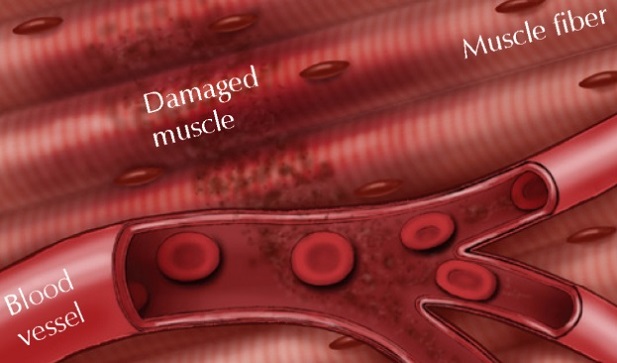SARS-CoV-2 Causes Most Severe Muscle Damage in Rheusus Monkeys When Compared to Other Animal Species
Nikhil Prasad Fact checked by:Thailand Medical News Team Jul 30, 2025 6 months, 2 weeks, 1 day, 2 hours, 23 minutes ago
Medical News: A groundbreaking comparative study conducted by scientists from Peking Union Medical College in Beijing, China has revealed that SARS-CoV-2 causes the most severe muscle damage in rhesus monkeys when compared to other common laboratory animal models. The research sheds new light on how the virus affects skeletal muscle, heart muscle, and gastrointestinal smooth muscle across different species. The study also provides alarming warnings for human health with regards to the fact that COVID-19 infections are causing serious muscle damage in various organs and tissues.
 SARS-CoV-2 Causes Most Severe Muscle Damage in Rheusus Monkeys When Compared to Other Animal Species
SARS-CoV-2 Causes Most Severe Muscle Damage in Rheusus Monkeys When Compared to Other Animal Species
The study team compared the effects of SARS-CoV-2 infection on a wide range of animal models, including hamsters, ferrets, hACE2 transgenic mice, hACE2-K18 mice, mink, cats, and rhesus monkeys. Within just five to seven days post-infection, muscle damage was observed in all species. However, this
Medical News report highlights that rhesus monkeys exhibited the most significant levels of muscle inflammation and tissue damage, making them the most representative model for studying COVID-19-induced myopathology.
Using in situ hybridization and electron microscopy, researchers confirmed that SARS-CoV-2 directly infects the skeletal, cardiac, and gastrointestinal muscles. These tissues showed notable immune cell infiltration, including CD4 and CD8 T cells, macrophages, and occasional B cells, alongside elevated inflammatory markers like IL-6, TNF-α, and IFN-γ.
What makes this study especially important is its detailed exploration of the potential mechanisms behind these lesions. The differences in severity among species appear to stem from multiple factors including the type of animal, the degree of direct viral invasion, systemic inflammatory responses, and the immune status of the host.
The study offers vital insights for future COVID-19 research. It not only helps in choosing the right animal model for investigating muscle-related complications but also underscores the importance of monitoring muscle involvement in human COVID-19 cases. The findings support the notion that COVID-19 is not just a respiratory illness but can also trigger significant muscular and systemic issues that need to be clinically addressed.
The study findings were published in the peer reviewed journal: Virologica Sinica
https://onlinelibrary.wiley.com/doi/10.1002/jmv.70512
For the latest COVID-19 News, keep on logging to Thailand
Medical News
Read Also:
https://www.thailandmedical.news/news/covid-19-can-trigger-shocking-condition-called-heterotopic-ossification-where-bone
-grows-in-muscles-and-organs
https://www.thailandmedical.news/news/muscle-quality-decline-in-covid-19-survivors-not-tied-to-inflammation-levels-during-acute-phase
https://www.thailandmedical.news/news/covid-19-causes-skeletal-muscle-and-mitochondrial-damage-that-contributes-to-myalgic-encephalomyelitis-chronic-fatigue-syndrome
